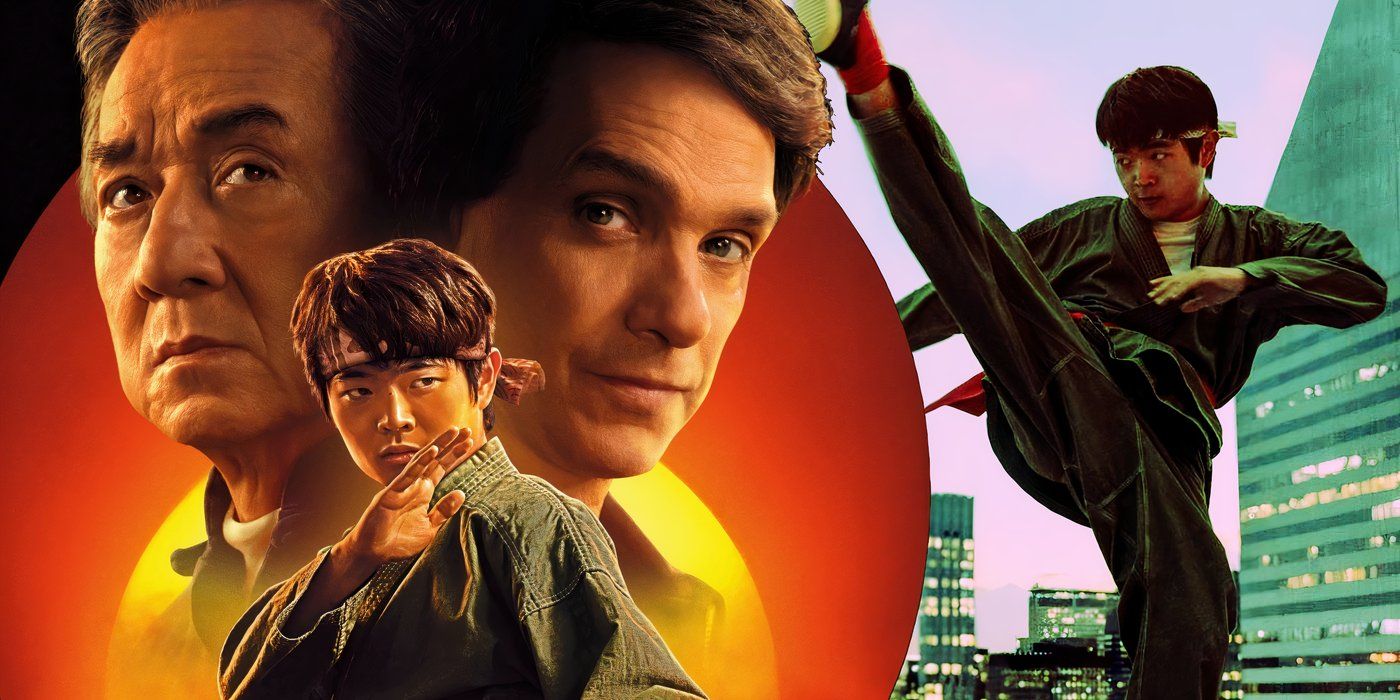The Karate Kid 2 (2025): Where Legacy Meets the Next Generation
🥋 The Karate Kid 2 (2025): Where Legacy Meets the Next Generation
The Karate Kid 2 (2025), officially titled Karate Kid: Legends, arrives as a powerful continuation of the beloved martial arts saga that spans over four decades. Following up on the 2010 reboot starring Jaden Smith and Jackie Chan, this new chapter marks the return of Dre Parker—now older, wiser, and no longer a student in need of guidance, but a figure of inspiration for a new generation of martial artists.
Set across Japan and New York, the story reintroduces Mr. Han (played once again by Jackie Chan) as the central mentor figure. He invites Dre back to Japan, not for a rematch or redemption arc, but to serve as a silent guide for Li Fong, a new protagonist struggling to find purpose and strength after the death of his older brother. Though Dre’s screen time is limited, his presence is deeply felt, especially for long-time fans of the franchise. Rather than being the main focus, Dre is now a bridge—a connection between past and present, between wisdom gained and wisdom passed on.
The heart of the film lies in the unexpected alliance between Mr. Han and Daniel LaRusso, played once again by Ralph Macchio. This long-anticipated crossover unites two legendary mentors from entirely different martial traditions—Chinese kung fu and Okinawan karate. Their partnership is brief but profoundly symbolic, reinforcing the idea that martial arts is not just a style, but a philosophy built on discipline, balance, and respect. Together, they mentor Li Fong through his emotional wounds, not merely teaching him how to fight, but how to stand back up.
Ben Wang, who plays Li Fong, emerges as the breakout star of the film. His portrayal of a conflicted teenager grieving the loss of family while navigating a new life in New York is both authentic and heartfelt. More importantly, he brings physical credibility to the role through intense martial arts choreography, which he performs with sharp precision and raw emotion. His journey, from inner turmoil to clarity and self-belief, anchors the film’s emotional core. Wang delivers not only action but a character that audiences can truly invest in.

The action sequences in The Karate Kid 2 retain the franchise’s grounded, no-nonsense approach. Jackie Chan, even in his seventies, performs most of his own stunts, reinforcing his reputation as one of cinema’s most committed action stars. The choreography is tight, believable, and emotionally driven—every punch and block carries meaning. Visually, the film contrasts the serenity of traditional dojos in Japan with the fast-paced energy of urban America. Cinematographer Justin Brown paints a dual world where the past and future meet, while Dominic Lewis’s score blends modern hip-hop with traditional Eastern tones, enhancing the generational bridge the film seeks to build.
More than just a film about combat, The Karate Kid 2 is a meditation on honor, discipline, and healing. Li Fong’s journey is as much about internal transformation as it is about physical ability. As he trains under two masters and finds his voice, we see themes of resilience, forgiveness, and legacy come to life. Dre’s appearance—while short—is meaningful, reminding us that true growth lies in passing knowledge to those who need it most. Mr. Han and Daniel, in turn, represent moral strength and the quiet dignity that true martial artists embody.
While the film delivers emotionally for many, not all reactions have been universally positive. With an average rating of 3.5 out of 5, critics and audiences are divided. Fans of the original franchise are thrilled by the nostalgia, the cameos, and the passing of the torch. But others argue that the screenplay plays it too safe, relying heavily on familiar beats and lacking a truly original narrative arc. Some saw the final-act cameos—especially the return of Johnny Lawrence—as unnecessary fan service, while others embraced them as love letters to the legacy.

Nevertheless, The Karate Kid 2 succeeds in bridging the franchise’s many threads. From Mr. Miyagi to LaRusso, from Dre Parker to Li Fong, the film tells a story not of singular heroes, but of a collective lineage. The sense of tradition, respect, and mentorship remains intact. This makes the film not only a continuation, but a spiritual reaffirmation of the Karate Kid ethos. The casting of Ben Wang is particularly inspired—he embodies both the vulnerability and quiet strength required of a modern-day “karate kid” without losing the soul of what came before.
Financially, the film performed well. With a budget of $45 million and a worldwide gross of over $102 million, The Karate Kid 2 proved there’s still a hunger for martial arts storytelling rooted in character and culture. Sony has hinted that a follow-up may be in the works, potentially expanding on Li Fong’s development or giving Dre Parker a larger role as a mentor. Regardless of where it goes next, this installment lays a solid foundation—honoring the past while setting up the future.

Ultimately, The Karate Kid 2 is not just a sequel—it’s a generational handshake. It may not reinvent the genre, but it honors its heritage while creating space for new voices and new warriors. Whether you’re a longtime fan or a first-time viewer, the film offers heart, purpose, and the timeless lesson that true strength lies not in victory, but in the courage to rise again.











